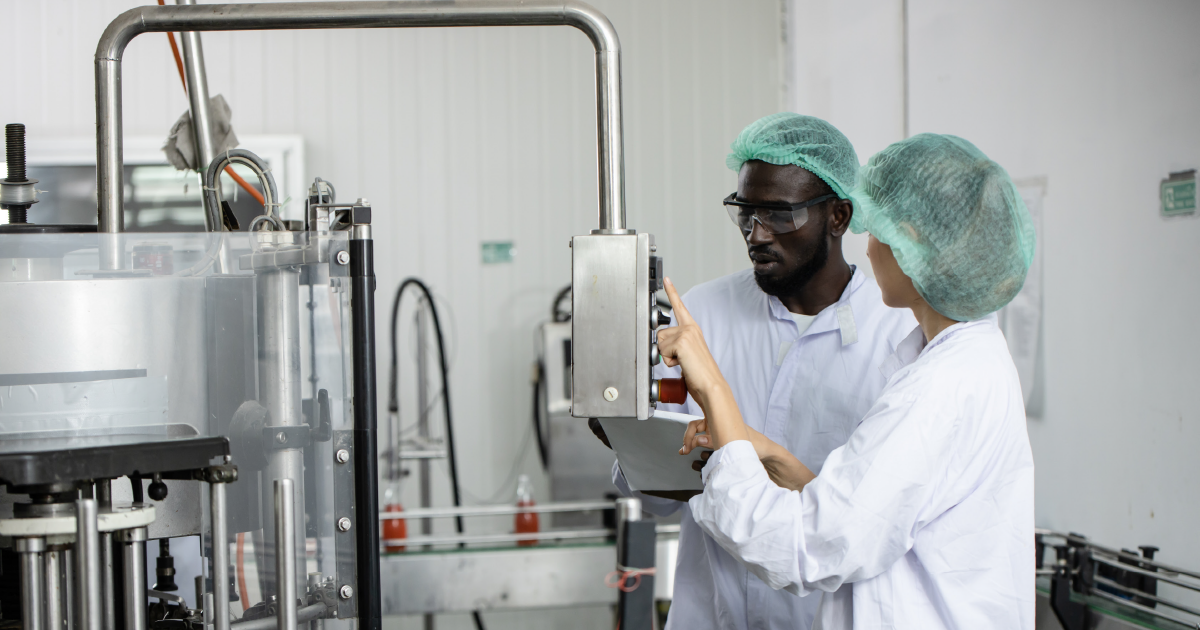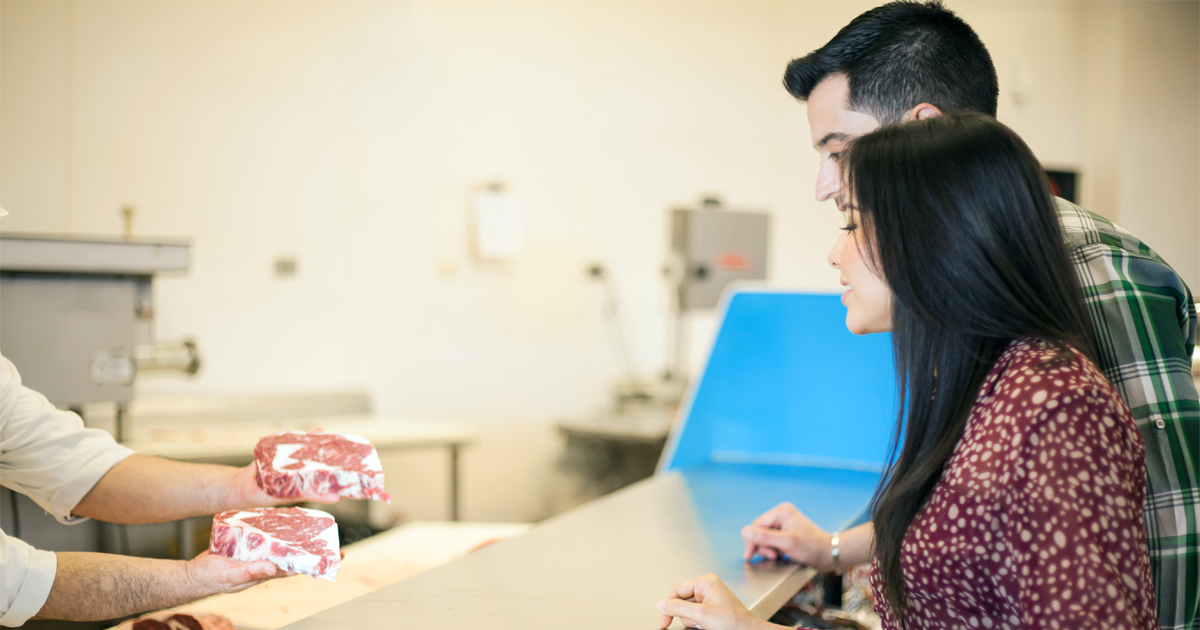By John Unrein
May 2021
100
Years
For a century, we celebrate the inspiring stories of retail bakeries.
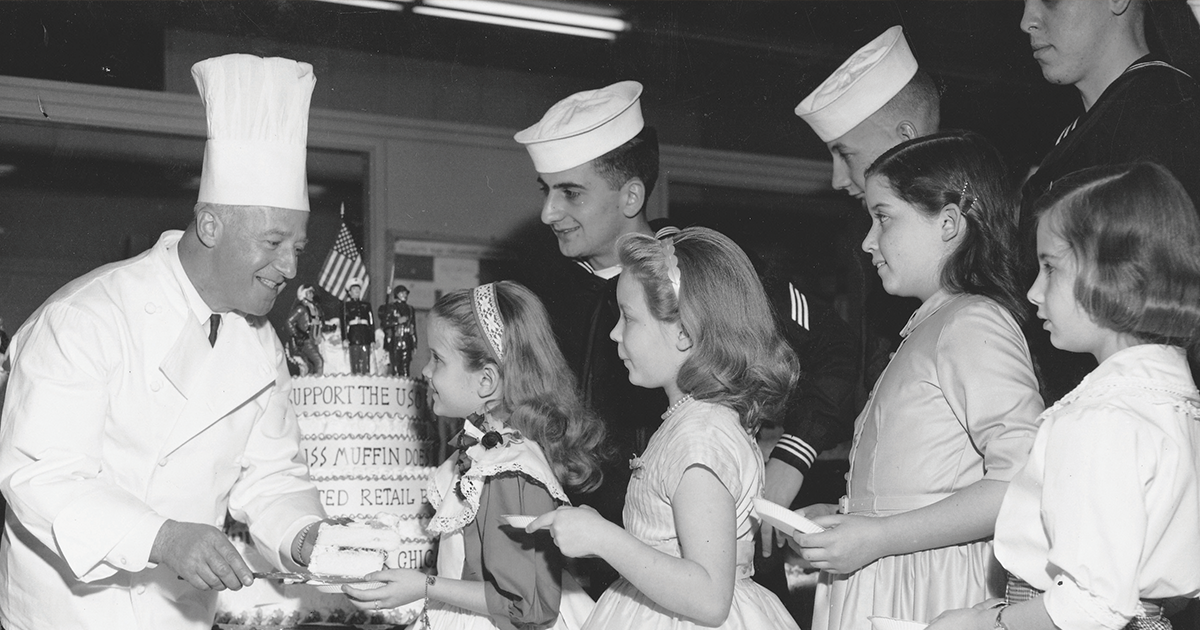

Our story is your story. During tough times and those filled with prosperity, the retail baking industry has advanced through the determination of family businesses dedicated to knowledge of their craft and solid work ethic. We feed the world — and our families — with a smile. And is there really any greater joy than that?
Your history is our history. And the following are just a few milestones of the many that our businesses have encountered during the past century. Our hope is that these stories remind us all how much our industry matters and how family has kept us together, growing stronger every year.
In the spring of 1918, a movement is started to organize retail bakers into a national body, and on July 16, in Chicago, a temporary organization is created. Eugene Lipp of Chicago becomes the president pro tem. That same year Dunwoody Institute launches its baking program, which eventually leads to the establishment of the American Institute of Baking and attracts future bakers like the Entenmann brothers to Minneapolis for the next 80 years. A year later, in 1919, the Retail Bakers of America (RBA) holds the association’s first annual convention Jan. 27-29 at the Sherman Hotel in Chicago. The convention was scheduled for October 1918 but was postponed due to the influenza pandemic.
Founded a few years later in 1922, our company, Sosland Publishing, begins its journey as a B2B trade publishing company focused on producing and delivering indispensable content for the industries it serves. Owned and managed by a family of editors and publishers, Sosland Publishing’s first 50 years were dedicated exclusively to the grain, flour milling and baking industries. In recent decades, the company has broadened its reach deeper into the food processing industry (including meat and poultry processing), as well as into international grain and feed handling and processing, and most recently, pet food processing and the supermarket perimeter.
In 1921, initially working at Stetson Hat Company, the Termini Brothers (pictured on the first cover of bake’s current, award-winning design) saved enough money to open a humble kitchen and storefront. Termini Brothers Bakery was born in Philadelphia. Within two years, Termini Brothers became the go-to spot for wedding cakes, allowing the brothers to purchase their first delivery truck.
Seventeen years after opening their small storefront, the brothers saved enough money to move across the street to a larger location – where Termini Brothers Bakery currently stands today. Vincent Termini Sr. is born in that same year. As WWII unfolded, the demand for Termini Brothers fruit cakes being shipped overseas to the frontline is insatiable, adding further to the legacy and reputation of the bakery.
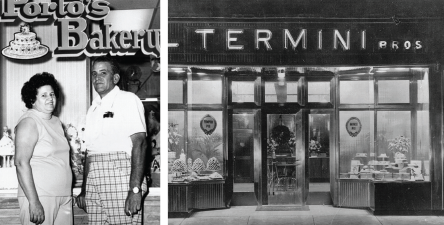
Rising in Middle America
In Chicago, Luke Carl recalls that when his wife’s great grandfather, Joseph Dinkel, came to Chicago in the early 1900s, he brought with him remarkable baking skills and recipes from a long line of master bakers in southern Bavaria, Germany. He was able to open a small bakeshop in 1922 with the help of his wife, Antonie. For the first 10 years, it was Joseph baking in the back of the shop and Antonie selling. Joseph’s delicious baked foods quickly became very popular throughout the city.
In 1932, as the popularity of Dinkel’s baked foods grew, Joseph and Antonie expanded the current location. It was about this time that their son, Norman Dinkel, Sr., came into the business and continued to build the quality reputation of the business. In the early 1970s, Norman Jr. took over the helm of the bakery, thus embarking on the third generation of the business. As word spread of the bakery’s quality products, demand for Dinkel’s baked goods began to come in from loyal customers across the country (and even overseas).
“This is why I am proud to be a part of the Dinkel’s tradition (now in its fourth generation) and am so proud to pass on this love of tradition to my children,” says Luke Karl.
Started in 1911 by John C. Roeser Sr., Roeser’s Bakery is the oldest family-owned bakery still in the same location in Chicago. The bakery is now in its fourth generation, with John C. Roeser IV leading the way. Roeser’s was one of the first bakeries in the city to install a freezer in the store and in the shop. In 1946, John Jr. installed the neon sign that still hangs outside today.
When the bakery was remodeled in 1953, it was the first all-Formica store front in a retail bakery. In 1965, Roeser’s became the first bakery with an air conditioned shop in Chicago, which helped maintain the quality of Roeser’s now famous whipped cream cakes on those hot summer days.

Ohio happenings
In 1928, the same year that Otto Frederick Rohwedder’s loaf-at-a-time bread slicing machine ushers in the beginning of packaged sliced bread, Joe and Daisie Busken open Busken Bakery in Cincinnati. Joe borrowed $500 (a small fortune at the time) from a relative with a failed cigar box company, put an oven in the back of the store, and began to sell bread, breakfast sweets and cookies. Joe and Daisie’s grandson Page Busken would serve as RBA president from 1981 to 1983. Joe Busken Sr. knew a good bit about the challenges of the retail baking business when he opened the first Busken store in the Hyde Park neighborhood. His father, Clem, had run a bakery in Oklahoma City after working as a route salesmen for Fleischmann Yeast Co. In Busken’s early years, Joe would bake all night and sell all day, counting every penny along the way.
Another popular bakery in Cincinnati, Servatii Pastry Shop & Deli, grew to 12 stores throughout the tri-state region and numerous wholesale customers. The Gottenbusch family has been preparing fresh baked goods since the 1800s. Great grandfather George started out in Muenster, Germany, driving a horse-drawn wagon door to door selling his fresh baked goods. His son, George, attended Germany’s most recognizable baking school and received his “Konditor Meister” status as Master Pastry Chef. By the early ‘50s, George opened Café Servatii, next to St. Servatii Church — named after an Italian saint — on Servatii Platz, in the heart of Muenster. His son Wilhelm followed in his footsteps. He earned his Master Status, traveled the world, working in Australia, Poland and on an international freighter before settling in Cincinnati.
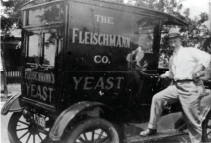
You might also enjoy:
Overcoming obstacles and chasing innovation, the pet food industry prepares for its promising future.
Looking ahead, producers, processors and retailers must appeal to evolving demographics.
Today’s meat and poultry processors carefully manage expectations to feed people, preserve the planet and deliver profits in the future.
Texas twists
Poland was the home country of the Jucker family, which now operates Three Brothers Bakery in Houston. Three Brothers continues to be owned and managed by members of the Jucker family. Sigmund’s son, Robert, a fifth-generation baker, now runs the business along with his wife, Janice.
“The most important thing about our family is we are a family of survivors,” Janice Jucker says. As a tribute to the history of the family bakery, the Jucker family uses old wooden worktables as tabletops. Robert Jucker explains that you can still see some deep grooves in some of the wooden tabletops where bakers kneaded the dough for so many years. “It’s a unique way to celebrate something that we have had in our family.”
One year ago, the Houston bakery recognized its 71st anniversary with a special day at their Braeswood location with cookies for 71 cents each. Additionally, the bakery created Mitzvah Funds and encouraged its loyal following to donate $7.10 to commemorate the special day. Mitzvah is Hebrew for Good Deed. After receiving some media attention for its struggles to survive yet another disaster, people began sending the bakery money to use to bake for others in need.
Honoring family
On the West Coast, Porto’s Bakery remains a successful family business run by the Porto family. The bakery was founded in 1960 by Rosa, who passed away in December 2019, and her husband Raul Porto Sr. Porto’s Bakery traces its roots to Manzanillo, Cuba, where Rosa worked as a home economics teacher before she began to sell cakes from the family home.
Raul Porto, owner of Porto’s, which is based in Los Angeles, traces his family bakery’s biggest move to 2003 when they expanded Glendale to include a cafe and coffee bar. “That was the moment that, all of a sudden, sales blew up,” Porto told attendees during the latest International Baking Industry Exposition (IBIE). “Our food business doubled, and our pastry increased 20%. The mixing of bakery and food was the biggest thing we ever did.”




